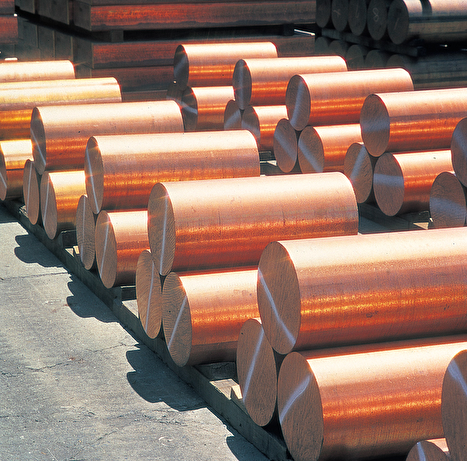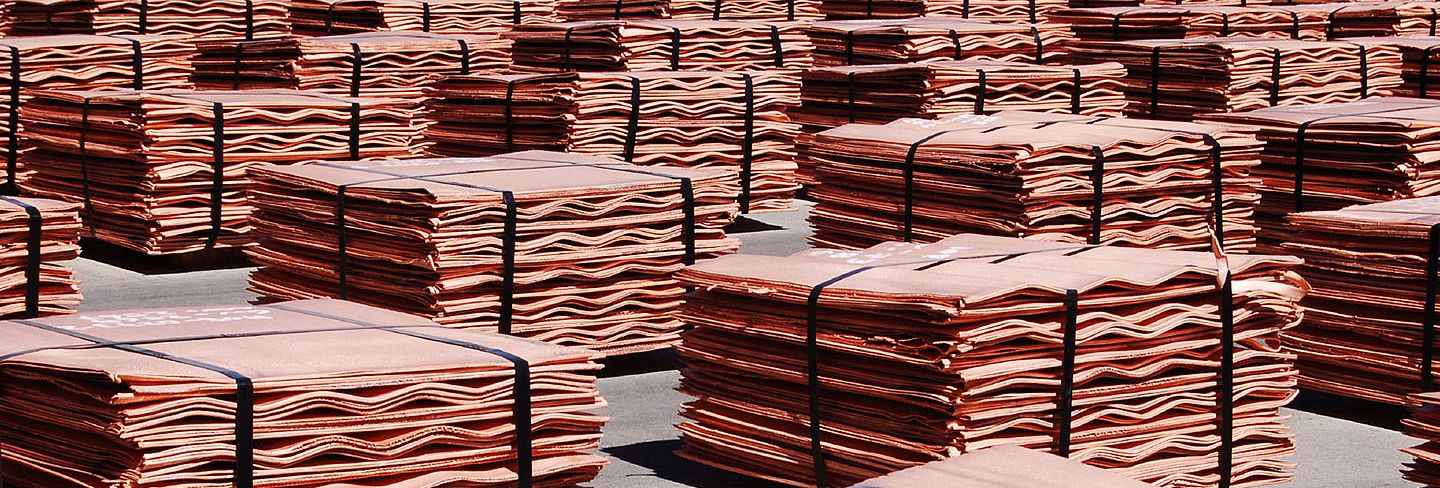How Copper Products Contribute to Lasting Practices in Various Industries
Copper products are increasingly recognized for their considerable contributions to lasting practices across multiple fields, driven by their fundamental residential properties such as toughness, recyclability, and efficiency. In eco-friendly power systems, as an example, copper boosts the functionality of solar and wind innovations, while its application in construction lessens waste via longevity. Additionally, the product's antimicrobial characteristics provide appealing benefits in medical care settings. As sectors look for to adopt more sustainable methods, the function of copper can show pivotal in attaining ecological goals. What implications might this have for future advancements in sustainability?
Copper in Renewable Resource
Copper plays a vital role in the improvement of renewable power technologies, serving as an important conductor in various applications. Its remarkable electric conductivity and resistance to corrosion make it an excellent product for electrical wiring, which is essential in photovoltaic panels, wind generators, and energy storage space systems. In solar photovoltaic systems, copper is made use of in the interconnections and wiring, allowing efficient energy conversion from sunshine to electrical energy.
In wind energy, copper is essential to the generators and transformers that convert kinetic energy right into electric energy, ensuring optimal efficiency and integrity. Furthermore, the demand for electric automobiles (EVs) is raising, with copper being a crucial part in batteries, electric motors, and billing framework. The transition to EVs dramatically boosts the need for copper, as these automobiles commonly make use of 4 times more copper than traditional internal combustion engine lorries.
As the globe seeks to reduce climate change and transition to lasting power resources, copper's function comes to be progressively vital. The material not just enhances the effectiveness and longevity of renewable resource systems yet also supports the more comprehensive goal of decreasing greenhouse gas exhausts and advertising a sustainable future.
Eco-Friendly Construction Products
In the last few years, there has actually been a notable shift towards the adoption of environmentally friendly building materials in response to expanding environmental worries. This adjustment is encouraged by the demand for sustainable choices that reduce environmental footprints while maintaining structural integrity and aesthetic charm.
Copper, understood for its sturdiness and recyclability, has become an essential gamer in this market. It can be utilized in roof covering, plumbing, and electric systems, contributing to energy efficiency and minimizing waste. Copper's long life means less substitutes gradually, additional enhancing its sustainability account.
In addition, products such as bamboo, recovered wood, and reused steel are gaining popularity. These alternatives not just use minimized ecological effect yet likewise promote source conservation. As developing codes significantly emphasize sustainability, building contractors and engineers are integrating these products into their tasks, cultivating innovation in layout.
The raising adoption of green building materials shows a broader dedication to sustainability in the developed setting. By prioritizing these materials, the building and construction market can significantly reduce its carbon impact, line up with regulatory standards, and sustain a much healthier ecosystem for future generations. This pattern notes a critical action towards a more lasting future in building and construction.
Copper's Function in Healthcare
Current studies have highlighted the considerable function of copper in medical care settings, particularly as a result of its antimicrobial homes. Copper surfaces have actually been revealed to minimize the visibility of virus, consisting of bacteria and infections, by up to 99.9% within a brief period. This remarkable efficiency makes copper an invaluable product for high-touch surfaces in hospitals, such as doorknobs, bed rails, and IV posts, thus contributing to boosted infection control steps.
In addition to its direct antimicrobial results, copper likewise plays a role in the more comprehensive context of hospital sustainability (Copper Products). By integrating copper right into clinical tools and home furnishings, healthcare facilities can lower the incidence of healthcare-associated infections (HAIs), which not just enhances person end results but likewise decreases the costs related to extended health center remains and added treatments
Furthermore, copper's durability and recyclability line up with sustainable practices, permitting responsible resource monitoring. find more info As health care systems significantly prioritize both individual safety and security and environmental stewardship, the assimilation of copper items is becoming a lot more common. This double benefit emphasizes copper's crucial payment to a much healthier, more secure, and much more lasting you can try these out medical care setting.
Sustainability in Transport

Furthermore, copper's durability and deterioration resistance contribute to the long life of transportation facilities (Copper Products). In rail systems, as an example, copper components boost the reliability and efficiency of signaling and power systems, crucial for minimizing delays and energy usage. Furthermore, copper's duty in renewable resource systems, such as solar and wind, sustains lasting transportation services by supplying tidy power for electrical transportation choices
Investments in copper modern technology not only foster sustainability however additionally stimulate financial growth and job creation in eco-friendly markets. As sectors make every effort to meet strict ecological regulations, the application of copper products in transportation becomes a critical method in attaining sustainability goals and advertising a cleaner, extra reliable future.
Copper and Circular Economic Situation
As the globe progressively embraces sustainability, the role of copper in the round economic climate becomes ever before extra considerable. Copper's innate homes-- such as its toughness, recyclability, and conductivity-- placement it as an essential material in a resource-efficient economy. The round economy aims to decrease waste and make the most of resource usage with recycling and reusing materials, and copper excels in this regard.
The metal can be reused indefinitely without loss of quality, making it a suitable candidate for sustainable techniques throughout different fields, consisting of construction, electronics, and eco-friendly energy. By reprocessing and recovering copper from end-of-life items, markets can dramatically minimize the requirement for virgin products, thus decreasing ecological effects related to mining and processing.
Additionally, the assimilation of copper into round economic climate structures not only conserves sources but additionally this hyperlink fosters development. Organizations that focus on copper reusing add to an extra lasting supply chain, enhancing their competition while lining up with regulatory needs and customer choices for ecologically accountable items.
Final Thought
In verdict, copper products significantly add to sustainable methods across numerous sectors. Their important role in improving renewable resource technologies, promoting environmentally friendly building products, sustaining infection control in healthcare, facilitating lasting transport, and embodying the principles of a circular economic climate highlights the convenience and importance of copper. By integrating copper into different applications, markets can accomplish better performance, reduce environmental impact, and align with worldwide sustainability goals, eventually cultivating an extra lasting future.

Copper's superb conductivity makes it a recommended material in electrical automobile (EV) systems, boosting energy performance and performance. In addition, copper's duty in renewable power systems, such as solar and wind, sustains sustainable transportation remedies by providing tidy energy for electric transit alternatives.
Their necessary duty in improving eco-friendly power modern technologies, advertising environmentally friendly building products, supporting infection control in medical care, helping with lasting transport, and symbolizing the principles of a circular economy underscores the adaptability and value of copper.